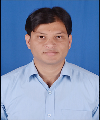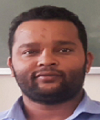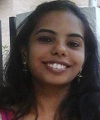The department of Applied Sciences and Humanities, NPSEI Pithoragarh was established in November 04, 2011 with a view of developing teaching and research in Basic Sciences and interdisciplinary areas. The department has well qualified faculty with best equipped laboratories. The department is actively engaged in emerging thrust areas in today’s perspective. The department strictly follows AICTE approved course curriculum in all subjects. Apart from academics, department extends active support in administrative assignments for smooth functioning of institute.
Contact Address of Department
Dr. B.P. Joshi
Head, Department of Applied Sciences
NPSEI Pithoragarh
I.T.I. Campus, Pithoragarh- 262 501, Uttarakhand
Email: [email protected]
Mob: 9458319912
Vision:
We aim to enhance scientific research standards in the fields of knowledge, the skill level and we try to keep the students abreast with the information of recent scientific developments.
Mission:
The department of Applied Sciences and Humanities works with following objectives:
• To facilitate fundamental understanding of basic sciences and ignite young minds to deliberate upon critical matters of inquiry in sciences through an interdisciplinary state-of-art facility.
• To prepare students for academic excellence through lectures, seminars and Industrial Visits.
• To empower aspirants according to industry needs.
• To inculcate a high sense of discipline and responsibility to meet the competitive world.

Dr. Kailash Chandra Das

Dr. Hemant Kumar Joshi

Dr. B.P. Joshi

Dr. Anvita Srivastava
Engineering Physics Lab
Engineering Chemistry Lab
Language Lab
Computer Centre
Departmental Library
Courses & Course Outcomes:
| Code | Subject Name | L | T | P |
| BSCT 101 | Engineering Mathematics – I | 3 | 1 | 0 |
COURSE OUTCOME:
To introduce the idea of applying differential and integral calculus to notions of curvature and to improper integrals. Apart from some applications it gives a basic introduction on Beta and Gamma functions.
To introduce the fallouts of Rolle’s Theorem that is fundamental to application of analysis to Engineering problems.
To develop the tool of power series and Fourier series for learning advanced Engineering Mathematics.
To familiarize the student with functions of several variables that is essential in most branches of engineering.
To develop the essential tool of matrices and linear algebra in a comprehensive manner.
| Code | Subject Name | L | T | P |
| BSCT 102 for 1stsem / BSCT 202 for 2ndsem | Physics Theory | 3 | 1 | 0 |
Prescribed for: Computer Science Engineering & Information Technology
Course Outcomes: After successful completion of the course, the students should be able to
CO1: Understand the basic knowledge about basics of quantum mechanics and semi- conductor materials,
CO2: Know the conceptual physics and its use in solving the physical problems.
CO3: Apply the principles of physics.
CO4: Describe the physics in his /her words.
CO5: Identify the reasons for physical happenings.
Prescribed for: 1. Electronics & Communication Engineering, Instrumentation & Control Engineering, Electrical Engineering, Electronic & Telecommunication Engineering, Applied Electronics and Instrumentation
Course Outcomes: After successful completion of the course, the students should be able to
CO1: Understand the basic knowledge about oscillations and waves, diffraction of optical waves, laser, quantum mechanics and its role in semi-conductor materials,
CO2: Know the conceptual physics and its use in solving the physical problems.
CO3: Apply the principles of physics.
CO4: Describe the physics in his /her words.
CO5: Identify the reasons for physical happenings.
Prescribed for : Mechanical Engineering, Automobile Engineering ,Industrial and Production Engineering, Mechatronics, Production Engineering
Course Outcomes: After successful completion of the course, the students should be able to
CO1: Understand the basic knowledge about oscillations and waves, diffraction of optical
waves, laser, quantum mechanics and its role in semi-conductor materials,
CO2: Know the conceptual physics and its use in solving the physical problems.
CO3: Apply the principles of physics.
CO4: Describe the physics in his /her words.
CO5: Identify the reasons for physical happenings.
Prescribed for: Civil Engineering, Chemical Engineering, Plastic& Polymer Engineering , Petroleum Engineering
Course Outcomes: At the end of the course, the student will be able to
CO1:Understand the vector mechanics for a classical system.
CO2: Identify various types of forces in nature, frames of references, and conservation laws.
CO3: Know the Newton’s equations of motion in polar, cylindrical and spherical coordinated.
CO4: Apply the knowledge obtained in this course to related problems such as weather systems, Foucault pendulum; Harmonic oscillator, etc.
CO5: Analyze the planar rigid body dynamics of the 2-Dimensional and 3-Dimensional system.
| Code | Subject Name | L | T | P |
| BSCT 103 | Chemistry (Concepts in chemistry for engineering) | 3 | 1 | 0 |
Course Outcomes:
The course will enable the student to:
Analyse microscopic chemistry in terms of atomic and molecular orbitals and intermolecular forces.
Rationalise bulk properties and processes using thermodynamic considerations.
Distinguish the ranges of the electromagnetic spectrum used for exciting different molecular energy levels in various spectroscopic techniques
Rationalise periodic properties such as ionization potential, electronegativity, oxidation states and electronegativity.
List major chemical reactions that are used in the synthesis of molecules.
| Code | Subject Name | L | T | P |
| BHST 101 | English | 2 | 3 | 0 |
| Code | Subject Name | L | T | P |
| BCST 101 for 1stsem &BCST 201 for 2ndsem | ||||
Course Outcomes: The student will learn
To formulate simple algorithms for arithmetic and logical problems.
To translate the algorithms to programs (in C language).
To test and execute the programs and correct syntax and logical errors.
To implement conditional branching, iteration and recursion.
To decompose a problem into functions and synthesize a complete program using divide and conquer approach.
To use arrays, pointers and structures to formulate algorithms and programs.
To apply programming to solve matrix addition and multiplication problems and searching and sorting problems.
To apply programming to solve simple numerical method problems, namely rot finding of function, differentiation of function and simple integration.
| Code | Subject Name | L | T | P |
| BEET 101 for 1st sem & BEET 201 for 2ndsem | Basic Electrical Engineering | 3 | 1 | 0 |
Course Outcomes:
At the end of this course, students will demonstrate the ability
To understand and analyse basic electric and magnetic circuits.
To study the working principles of electrical machines and power converters.
To introduce the components of low-voltage electrical installations.
| Code | Subject Name | L | T | P |
| BSCT 102 | Engineering Mathematics – II | 3 | 1 | 0 |
COURSE OUTCOMES
To acquaint the student with mathematical tools needed in evaluating multiple integrals and their usage.
To introduce effective mathematical tools for the solutions of differential equations that model physical processes.
To introduce the tools of differentiation and integration of functions of complex variable that are used in various techniques dealing engineering problems.
Department has organised three weeks induction programme for newly admitted B.Tech Ist Year students as a part of AICTE new syllabus curriculum from 20th August to 8th September 2018.
Department has jointly organized International Conference on New Technological Opportunities in Networking and Sciences 2018 (NEWTONS 2018) from 8-10 June 2018 with Department of Electrical Engineering, NPSEI Pithoragarh.
Department has organized 3rd National Conference on Recent Advances in Sciences & Technology (NCRAST-2017) from November 11-12, 2017.
Department has organized 2nd National Conference on Recent Advances in Sciences & Technology (NCRAST-2016) from August 29-30, 2016.
Department has organized 1st National Conference on Recent Advances in Sciences & Technology (NCRAST-2015) from August 22-23, 2015.

